13 point resolutions following the conclusion of the 3 day Kenya Media Sector convention
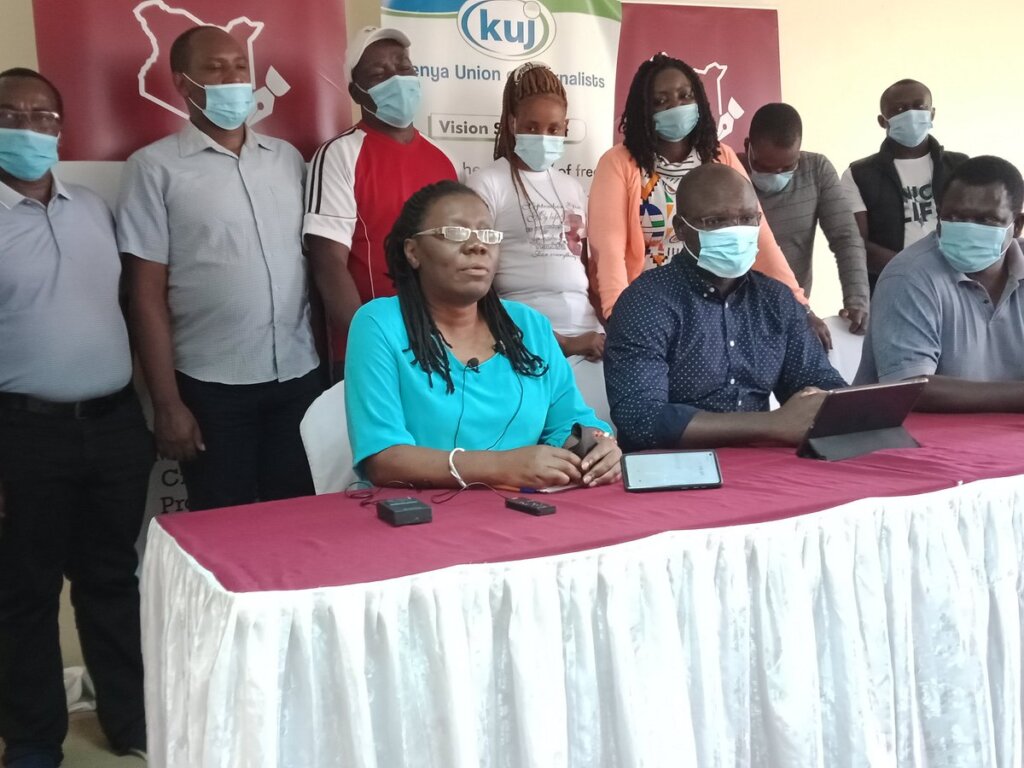
Maanzoni Lodge, Machakos County March 7, 2021 Good afternoon colleagues. We, members of the Kenya Media Sector Working Group, have met at Maanzoni Lodge since Friday, March 5, 2021 and discussed a number of matters relating to enhancing media sustainability in Kenya. The meeting, convened by the Kenya Editors’ Guild and the Kenya Union […]
Defenders Coalition and partners submits memoranda to Kenyan parliament on Huduma Bill 2020
Read the the Huduma Bill 2020 here Huduma Bill 2020 Analysis & Recommendations Overarching issues: Risks of Exclusion: The draft bill does not sufficiently address concerns of exclusion that have been repeatedly raised over the past two years. Those at risk of exclusion from NIIMS enrollment include Kenyans without identification documents, people with biometric […]
PRESS RELEASE: ODPP WITHDRAWAL OF CASE AGAINST 15 POLICE OFFICERS AND 6 COUNTY ENFORCEMENT OFFICERS.
THE RETURN OF THE DARK DAYS The Police Reforms Working Group (PRWG-K) is deeply dismayed and shocked in the manner in which the Office of the Director of Public Prosecutions (ODPP) has treated the case (Cr No. CR/E043/21) in which 15 police officers and 6 county enforcement officers were involved in an incident in Busia […]
Call for Independent Investigation into Rwandan Singer Kizito Mihigo’s Death
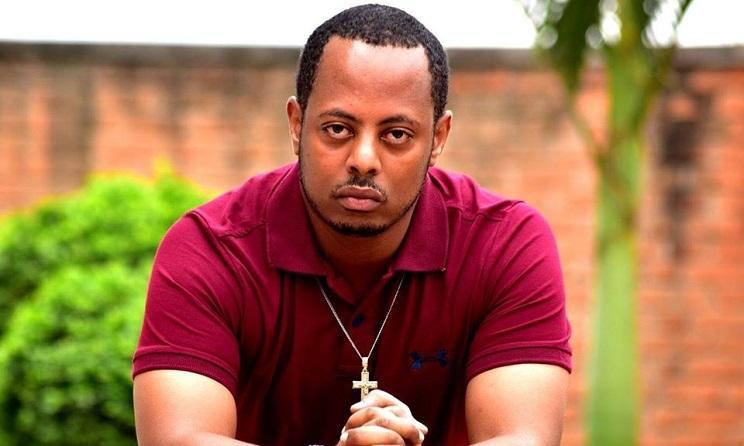
Open Letter to All Commonwealth Heads of Government Excellencies, Re: Call for independent investigation into Rwandan singer Kizito Mihigo’s death Civil society organizations around the world are calling on the Rwandan authorities to allow an independent, impartial, and effective investigation into the […]
Uganda: Call for Immediate Release of prominent human rights defender- Nicholas Opiyo and two others.
The undersigned organisations strongly condemn the arbitrary arrest of renowned human rights defender Nicholas Opiyo. On 22 December, Opiyo in the company of two other lawyers Odur Anthony and Esomu Simon were arrested at about 4.00pm by plain clothed security agents at Lamaro restaurant in Kamokya suburb, Kampala, and bundled in a vehicle. The Uganda […]
#RecoverBetter – #StandupForHumanRights on International Human Rights Day
Recover Better – Stand up For Human Rights Remarks by Kamau Ngugi – Executive Director, Defenders Coalition 10 Dec 2020. International Human Day Defenders Coalition works with individuals and organizations at the forefront of defending fundamental rights and freedoms In Kenyan history, the footprints of human rights defenders are visible in every element of change […]
PRESS RELEASE WINNERS OF THE 2020 HUMAN RIGHTS DEFENDERS AWARDS ANNOUNCED
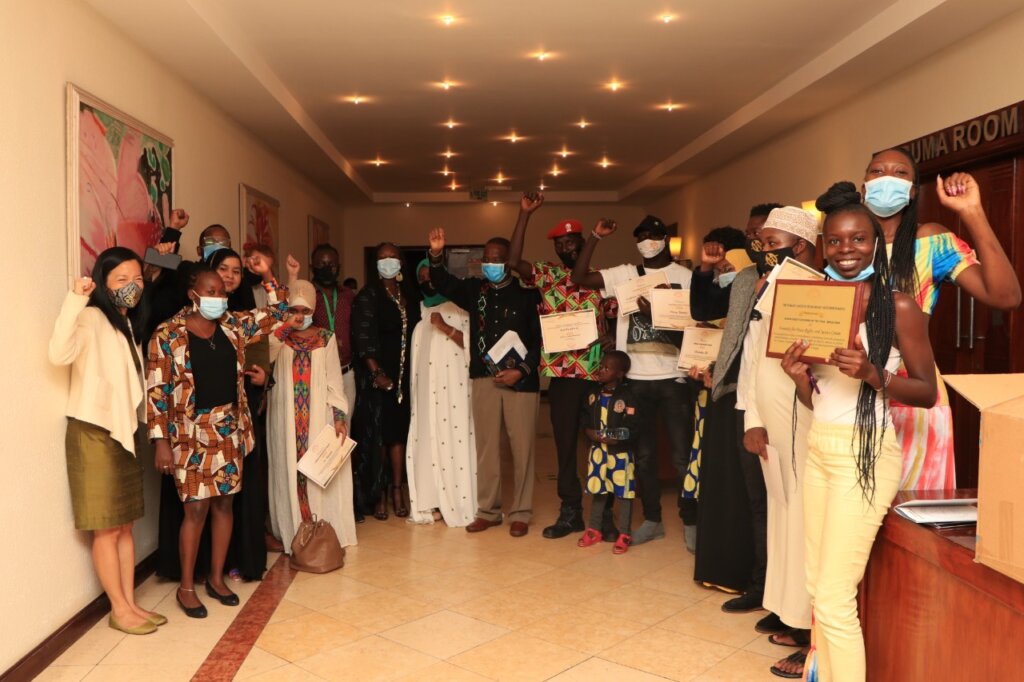
PRESS RELEASE WINNERS OF THE 2020 HUMAN RIGHTS DEFENDERS AWARDS ANNOUNCED 27 November 2020 – Nairobi, Kenya. The Defenders Coalition (National Coalition of Human Rights Defenders in Kenya) and the Working Group on Human Rights Defenders announced today the winners of the 2020 Human Rights Defenders awards during a ceremony held in Nairobi at Sarova […]
Launch of Case Digest Report: They Keep Coming After Rights Defenders
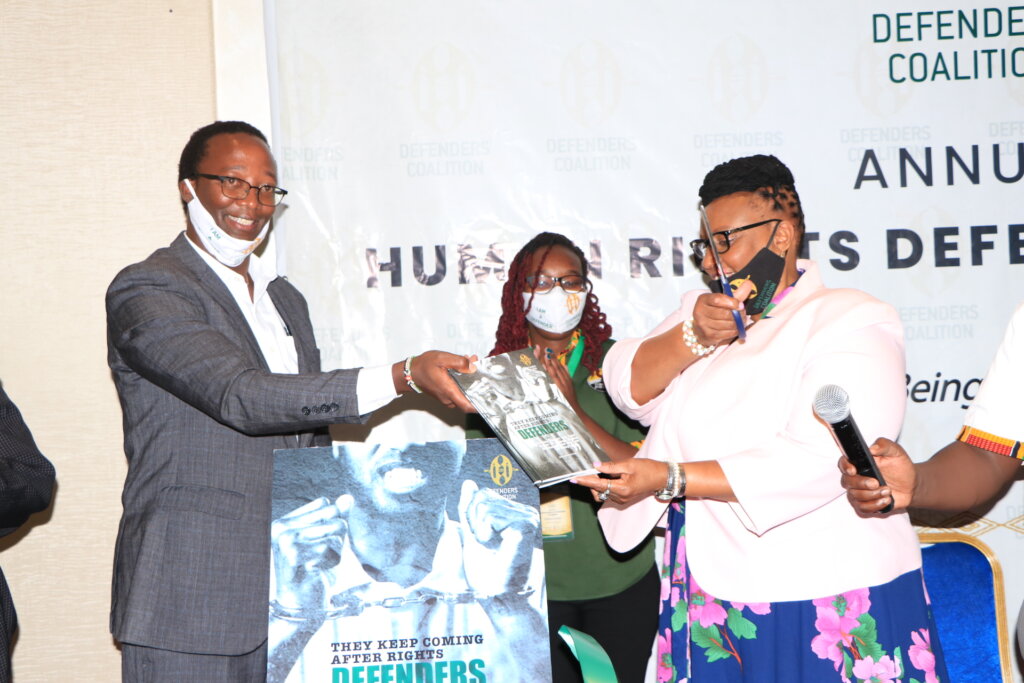
They Keep Coming After Rights Defenders In 2016, the Defenders Coalition published the first edition of trends report and case digest on human rights defenders and the law in Kenya. The report documented trends of human rights violation against HRDs and highlighted landmark court decisions that have had an impact on the working environment of […]
Grass root solidarity and support round up – October 2020
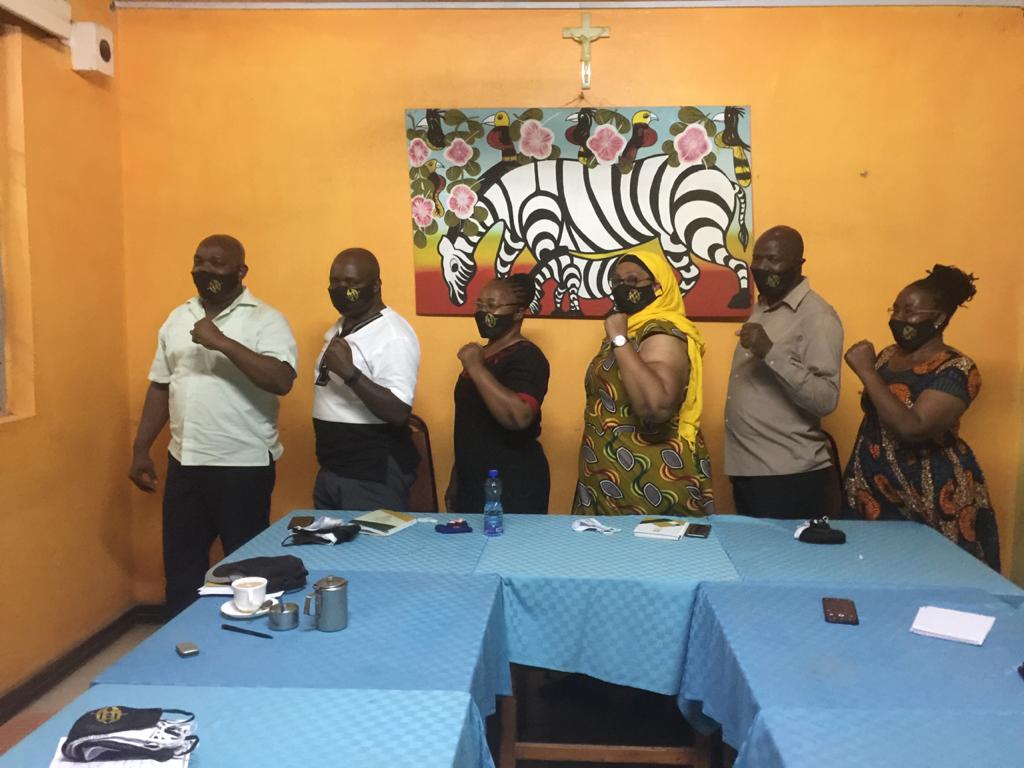
Defenders Coalition embarked on a range of solidarity, movement building and capacity enhancement efforts to deliberately promote and support those on the forefront championing and supporting the rights of others in Kenya. Below is a aummary of the activities that we have undertaken within the first week of October 2020. Taita Taveta Paralegals needs Assessment […]
UN Human Rights Council – 45 th regular session : Adoption of the report on the UPR of Kenya
UN Human Rights Council – 45 th regular session Item 6: Adoption of the report on the UPR of Kenya Oral statement Delivered by: Kamau Ngugi Madam President, The Defenders Coalition and DefendDefenders welcome the acceptance by the Government of Kenya of a large number of UPR recommendations. Kenya’s January 2020 review was a milestone […]


